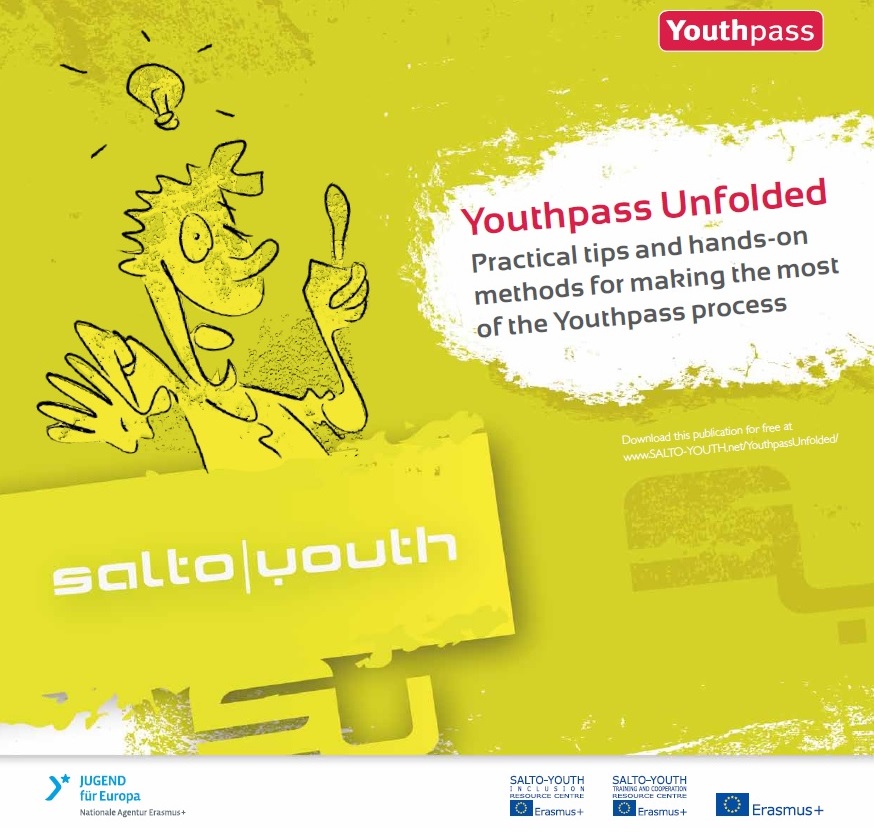Last November the government launched the initiative entitled “Youthpass” certificate ([1]). This initiative arises as a result of recommendations made by the European Commission, by the Council of the European Union, the European Parliament and the European Youth Forum, notably through the Recommendation on the validation of non-formal and informal learning and the Recommendation on key competences for lifelong learning.
The Government also took into consideration other recommendations such as from the National Youth Council (Conselho Nacional de Juventude), the National Federation of Youth Associations (Federação Nacional das Associações Juvenis), and Parliament resolutions.
All these documents show the huge need to create national strategies for enhancing and recognising the non-formal skills acquired by young people through youth associations and voluntary work and also the creation of a national strategy for the promotion of citizenship, partnership-making and volunteering that makes the conciliation with associative work, school and professional life possible.
The Youthpass is an instrument of recognition and validation of learning developed by young people in processes and activities in the field of non-formal education, outside the school context.
It helps the participants of those projects to record their learning and skills development, which could be used, afterwards, when applying for a job or to other projects.
Youthpass is a new way for young people in the Youth in Action Programme to describe what they have done and to show what they have learnt, starting with Youth exchanges and Training courses.
This document is free and comprises an individual certificate, allowing the update of contents over the time. It is an instrument produced, managed and issued by the Portuguese Institute of Sport and Youth (Instituto Português do Desporto e Juventude). It targets young citizens from 12 to 18 years old.
The competences standards for recognition and validation of learning is organised into the following areas:
- Area A – Communication in mother tongue (ability to express and understand ideas and facts, both orally or in writing and to interact with other people in an appropriate way in social and cultural life);
- Area B – Communication in foreign languages (is closely linked to communication in the mother tongue but adapted to a foreign language, additionally adjusted to the need of a positive attitude towards cultural differences and curiosity about languages and intercultural understanding;
- Area C – Mathematical competence and basic competences in science and technology (ability to use a mathematical reasoning of everyday situations; knowledge and understanding of the social and human sciences contributions)
- Area D – Digital competence (safe and critical use of the information society technologies, awareness of their challenges, mastery of information and communication technologies);
- Area E – Learning to learn (ability to organise and be responsible for their learning, to manage obstacles, to evaluate their learning outcomes);
- Area F – Social and civic competence (personal, interpersonal and intercultural skills, attitudes that allow citizen participation in social and professional life);
- Area G – Sense of initiative and entrepreneurship/ability to turn ideas into action (ability to create, innovate, take risks, plan and manage projects to achieve objectives. Raising awareness of ethical entrepreneurship values in a democratic society);
- Area H – Sensibility/cultural expression/creativity (awareness of the importance of the creative expressions of ideas, experiences and emotions through a range of ways, including music, arts, literature and visual arts).
As already stated, the Youthpass is more than a certificate; it is a mean that allows young people to describe what they have done and to show what they have learnt. It comes with a guided process that helps them to present their life experiences and key competences they have acquired, including in Youth exchanges, European voluntary service, Training courses and through youth worker mobility.
([1]) Portaria (Ordinance) n.º 336/2017, de 7 de novembro.
Other sources:


